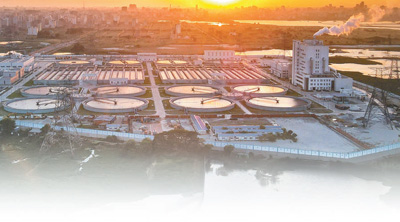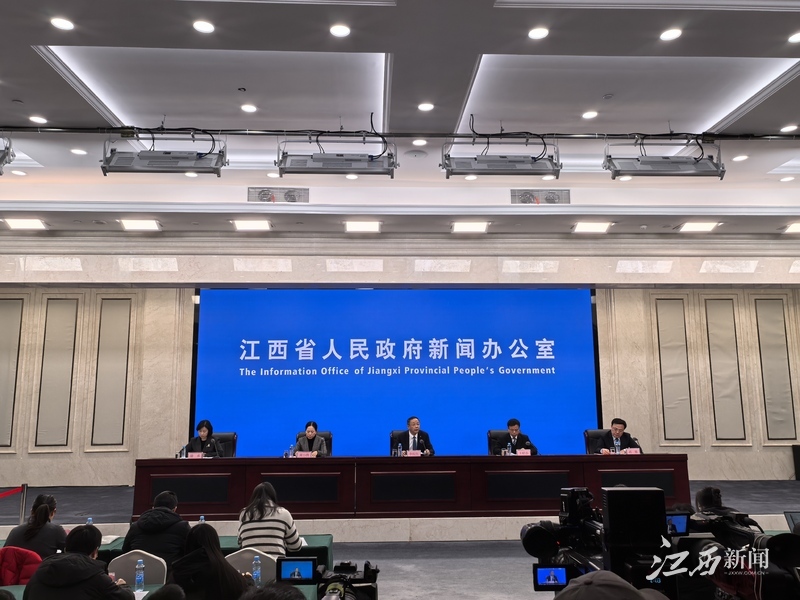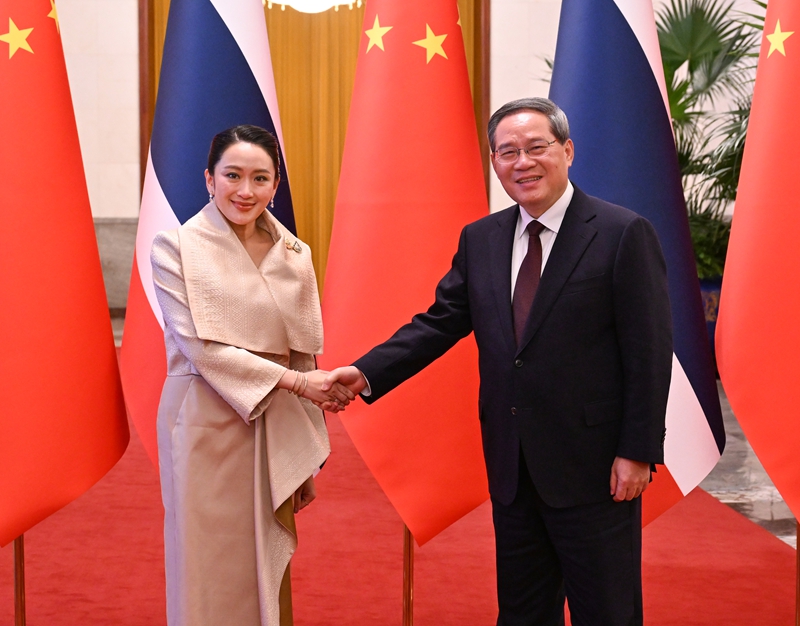Five Environmental Factors Need To Be Paid Attention To When Chinese Companies Accelerate Their Overseas Trips
Five Environmental Factors Need To Be Paid Attention To When Chinese Companies Accelerate Their Overseas Trips
(The author of this article is Yang Ling, associate professor at the School of Economics of Shanghai University and director of the Center for Integration of Digital and Realities Research) As microscopic individuals, enterprises are living cells of the national economy. The development and growth of enterprises are symbols and powerful manifestations of the improvement of the country's comprehensive strength. Chinese enterprises have been reforming and opening up to this day
(The author of this article is Yang Ling, associate professor at the School of Economics, Shanghai University, and director of the Center for Integration of Digital and Realities Research)
As micro individuals, enterprises are living cells of the national economy. The development and growth of enterprises are symbols and powerful manifestations of the improvement of the country's comprehensive strength. Since the reform and opening up, Chinese enterprises have successfully opened up a path from processing and manufacturing to independent brands. Today's Chinese companies can not only accept overseas orders flexibly and efficiently, but more and more companies have gradually grown from trade-oriented enterprises to foreign investment while integrating into economic globalization. This is an important carrier and distinctive representation of China's economy's further deep integration into economic globalization.
The famous British economist Deng Ning proposed the investment development cycle theory in the early 1980s, which is a dynamic development theory of the international production compromise theory. According to different stages of a country's economic development, the development process of foreign investment is divided into four stages: the first stage: when the per capita GDP is less than US$400, a country's foreign investment is nearly zero, and the net foreign investment is negative; the second stage: the per capita GDP is between US$400 and US$2,000, and the proportion of a country attracting foreign investment has increased significantly, but the "going out" is less, which is manifested as the net foreign investment is negative, and the absolute value continues to increase; the third stage: when the per capita GDP is between US$2,000 and US$4,750, the amount of foreign investment attracted by a country continues to increase, and foreign direct investment is still manifested as "bringing in" is greater than "going out", but the absolute value continues to shrink; the fourth stage: the per capita GDP exceeds US$4,750, and the net foreign direct investment of a country begins to show positive values and continues to expand.
With the development of the "Belt and Road" initiative proposed by General Secretary Xi Jinping in 2013, my country's per capita GDP has increased from US$7,147 to US$13,000 in 2024, and the pace of foreign direct investment of Chinese enterprises has also continued to increase. According to the 2023 China Foreign Direct Investment Statistical Bulletin, my country's foreign direct investment stock reached US$2.96 trillion by the end of 2023, ranking among the top three in the world for seven consecutive years. At the same time, according to the «China Foreign Investment Statistical Bulletin 2024», my country's actual foreign capital use amount in 2023 was 1.13 trillion yuan, and the scale of FDI (foreign direct investment) ranks second in the world. China has grown into a world's major domestic and foreign investment country.
How to further accelerate the pace of Chinese companies' "going overseas" under the new situation? Drawing on Porter's diamond model, we must consider the global strategy, product structure and market competition we face worldwide, effectively allocate resources globally, scientifically and effectively combine changes in consumer demand in overseas markets, based on the investment attraction policies of the host government, consider the market opportunities that "going overseas" enterprises may capture, and consider supporting roles for related overseas industries to better find development space for overseas markets.
Therefore, under the "Belt and Road" initiative, Chinese companies should further accelerate their "going overseas". According to Dana Nicolezata Rasku's theory, overseas markets need to focus on the complexity of five aspects of the environment, namely the difference between the economic environment, political environment, legal environment, technical environment, and natural resource environment and the domestic market.
1. Economic environment
The economic environment is one of the crucial environments that any Chinese company that "goes overseas" needs to be the first to consider. Different economic environments directly affect the consumption level of consumers in overseas markets and determine the positioning and function of products promoted in overseas markets. Usually, in traditional developed countries such as Europe and the United States, considering that the per capita GDP is mostly at US$30,000 or above, the first factor that consumers consider when releasing demand is usually the weight of quality considerations higher than the price. Therefore, mid-to-high-end products may be more suitable for the needs of consumers in traditional developed countries such as Europe and the United States. Moreover, traditional European and American consumers usually have higher requirements for product-related services.
Related services are not limited to matching services for durable consumer goods such as home appliances, such as after-sales, repairs, and maintenance; they also include high-quality services in the marketing process, including the convenience, friendship, and experience of the consumer shopping process. This requires that "going overseas" enterprises conduct a large amount of scientific and effective market research on the consumption habits, characteristics, preferences and other characteristics of consumers in developed countries, and introduce differentiated foreign investment strategies for different overseas markets.
2. Political environment
Chinese companies that "go global" should fully consider the differentiated economic environment of overseas markets, and formulate international strategies for foreign investment based on the preferences of the host country's consumers, while also focusing on the political environment of the host country. Different political environments will form a new institutional and rule environment for my country's "going overseas" enterprises, and "going out" enterprises need to focus on research and effective adaptation. For example, Japan's institutional requirements for foreign-invested enterprises are quite different from those of European and American countries; Malaysia's preferential policies for foreign-invested enterprises are very different from those of African countries such as Egypt; Venezuela's operating model requirements for foreign-invested enterprises are many different from those of Turkey and other countries such as Türkiye.
Therefore, should all the businesses of "going overseas" companies "going abroad"? Or what parts need to "go out"? Or which host countries should we "go out" to? Or in what way to "get out"? A series of issues such as this must be done based on the political environment of the host country in order to steadily expand overseas investment business.
3. Technical environment
In the critical period of the new round of scientific and technological revolution and industrial transformation, cross-border investment based on technological differences between different countries has played an increasingly important role. With the accelerated evolution of the world's century-long overall situation, the rapid development of China's digital technology and green technology is obvious to all.
According to the different technological development environments of different countries, technical cooperation among countries seeking differentiation and carrying out effective complementary technologies can begin. Chinese companies can study more technical needs in the "going overseas" market and carry out technically supported foreign investment. For example, based on the local market's technical needs for Chinese companies, investment in battery cells, lithium batteries, wind power projects in Indonesia, Vietnam, Egypt and other countries, all fully demonstrate the successful measures of China's "going overseas" enterprises to fully deploy and invest technology-intensive technology industries overseas based on the overseas market technology environment.
Therefore, carefully studying the differences in the technological environment between China and foreign countries, giving full play to the technological advantages of our enterprises, and formulating differentiated foreign investment strategies according to national conditions is crucial for the successful "going overseas" enterprises to "go global".
4. Legal environment
The different legal environments of different countries determine the fundamental differences in the overseas market operating environment that multinational enterprises that "go overseas" in my country must face. China's legal system is a socialist legal system with Chinese characteristics with the Constitution as the core. The Contract Compilation of the Civil Code of the People's Republic of China and the Foreign Investment Law of the People's Republic of China are very different from the case laws of Europe, the United States and other countries.
Therefore, before "going overseas" enterprises must carefully study the legal environment of the host country and have a comprehensive understanding and mastery of their overseas business laws, including competition law, agency law, bill of receipt law, tort law, etc. At the same time, on the premise that my country's "going overseas" enterprises must also conduct in-depth study and master international laws such as international economic law and international environmental law, on the premise of clarifying the legal system of the host country.
V. Natural resources and environment
The difference in natural resources has also become one of the important reasons for countries to carry out foreign direct investment. Chinese companies should also fully consider the natural resources and environment of the host country when "going to sea", such as Chinese companies' metal mineral investment in Tanzania and Mexico, China's oil investment in the Republic of Kazakhstan, etc., take advantage of the natural resource mining technology advantages that companies already have, and make full use of the natural resource advantages of the host country through "going to sea", and make tax contributions, employment contributions and economic growth contributions to the investing countries.
We will carefully study the host country's economy, politics, technology, law, natural resources and environment, and help more Chinese enterprises successfully "go overseas", not only develop and strengthen Chinese enterprises, but also form more spillover and demonstration effects on the host country, and fully realize the effectiveness of mutually beneficial and win-win cooperation and development goals of China and the host country.





